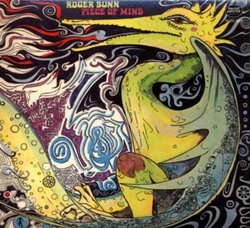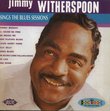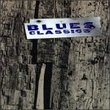| All Artists: Roger Bunn Title: Piece of Mind Members Wishing: 1 Total Copies: 0 Label: Rollercoaster UK Original Release Date: 1/1/2006 Re-Release Date: 5/16/2006 Album Type: Import Genres: Alternative Rock, Pop, Rock, Classic Rock Styles: Progressive, Progressive Rock, Psychedelic Rock, British Invasion Number of Discs: 1 SwapaCD Credits: 1 UPC: 5012814030550 |
Search - Roger Bunn :: Piece of Mind
 | Roger Bunn Piece of Mind Genres: Alternative Rock, Pop, Rock, Classic Rock
A great 'lost' album from the 1960s - we've heard that claim before - but this time it really was an essential and groundbreaking album that got 'lost'. Through replacing the Beatles at the Star Club, Hamburg and after a r... more » |
Larger Image |
CD DetailsSynopsis
Product Description A great 'lost' album from the 1960s - we've heard that claim before - but this time it really was an essential and groundbreaking album that got 'lost'. Through replacing the Beatles at the Star Club, Hamburg and after a request to Paul McCartney, Roger Bunn recorded some demos at the Beatles office in London in 1968 and somehow the tapes were sent to Philips Records in Amsterdam. Dutch producer Frans Peters teamed Roger up with arranger Ruud Bos and some fine classical and jazz musicians to record in Holland. All the album songs - including music and lyrics by Roger and John Mackie - were very original and far ahead of anything that was happening in the UK and USA at the time. Remember that in those prehistoric pre-Euromusic days there was little co-operation between countries for projects of this sort. This LP was one of a kind and that's probably the reason the album got lost. Deals were struck for it to be released in Germany and the UK - but both were on labels that gave Piece of Mind minimal or no promotion. We have added seven demos and studio recordings to the set, among them Roger's predictive vision of "In The Future" and the cynical "You and I" which tell of a world of never ending wars and home computers. And "Life Is A Circus", a classic song of its time - recorded - but never released - by David Bowie. Roger tells his own story in the 36-page booklet which includes tales of the musicians he worked with and for in his struggles against the machinations of the powerful big labels and reward organisations of the record industry - both then and now. Piece of Mind is a difficult album to put in a musical bag, with its fusions of jazz, blues and rock - and it is easily seen why Roger's music influences others rather than allows itself to be influenced by anyone. But if you liked the 'Top Gear' sounds of the late 60s and had thoughts of travelling East to Afghanistan along with Roger on the Hippy Trail, you'll like it. And as you take the Coltrane/McCoy Tyneresque "Road To The Sun" you'll wonder why this album never got to be one of John Peel's fave raves.... About the Artist Roger Bunn was hardly ever a household name in music, even at the peak of his career during the last three years of the 1960s. He somehow managed to play with lots of important people and bands, and at major gigs -- and intersected with the early career of David Bowie, as well as playing a role in the founding of such outfits as Roxy Music -- but he only ever got known especially well among musicians, rather than to the public. During the mid-'60s, he worked with a wide array of players, including Graham Bond, Zoot Money, and Joe Harriott, and crossed paths with Jimi Hendrix. By his own account, he also used a massive amount of recreational, often hallucinogenic drugs across the years leading up to the late '60s, which caused a memory lapse on aspects of his life that lasted well into the 1980s. He played with the Ken Stevens dance band and in Marianne Faithfull's backing band, and also lost out to Mick Taylor in a bid to join John Mayall's Bluesbreakers. After a stint playing with the expatriate South African Blue Notes, Bunn ended up working alongside Glenn Sweeney and Dave Tomlin in a trio called Giant Sun Trolley, which played on the same bills as Pink Floyd, Soft Machine, the Crazy World of Arthur Brown, and Procol Harum at the UFO Club. He was, through the trio, part of "The 14 Hour Technicolor Dream," a renowned psychedelic extravaganza. Similar CDs
|
CD ReviewsUK Rock-Jazz-Progressive w. Pete Brown 1969 Andersson, Christer | Sweden | 03/18/2007 (4 out of 5 stars) "Nowadays we're all fans. Or at least we're told we should be. We need to be entertained and demand new familiar or not-so-familiar sounds to satisfy our consumer instinct. For many, music is more about selling and buying than creating. Looking back at "psych" music we can check any number of musical commodities and ask ourselves, "Was it pop with ornamentation or something heavier and far-out?" In our disposable age it's hard to see the effect that an album could have artistically, especially in retrospect. Bands now are happy to ape each other with ironic glee or frustration for a time when pop music seemed very important. The frustration also seems to be with the overwhelming entertainment directive that guides so many of our lives.
But in 1969 Roger Bunn put together "stream-of-consciousness" words with jazz rhythms and acid-psych, punctuated by the occasional James Brown horns, to make a unique album. How many albums, even in the sixties, captured the real sense of unknown territory evident in Ken Kesey's "Merry Pranksters" bus rides? All through "Piece of Mind" we hear songs that have the same mythic sense of exploration that was about more than fashion and drug use. The need to entertain is certainly not just a new phenomenon. Even the Beatles "Magical Mystery Tour" seems pulled between the demands of well-crafted radio-friendly pop expectations and the sense of abandon and new territory suggested by psychedelia. They pull it off pretty well of course (as they tended to do), but one could argue that this split between commercial expectation and artistic development is really what broke up the Beatles in the end. "Magical Mystery Tour" (the film anyway) certainly didn't go down very well at the time, and it seemed to be a possible sign of self-indulgence. But maybe in retrospect we can see that it was just a sign of the complexity of the times and the difficult balance that's needed to recreate an experience that is truly internal and "psychedelic" in a way that can be enjoyed by all. With "Piece of Mind," we have a real testament to one person's take on many of the influences of the time, and the journey is definitely as inward as it is outward. Looking back, there will be those who prefer more pop with psychedelic tinges in their music, as well as more accommodations for listeners who want their music a certain way. But this is an album that sets its own standard. While the Doors plastered some jazz chord changes onto "Light My Fire," they also couldn't escape the blues background that placed them firmly in a traditional setting. "Piece of Mind" is part jazz as well, but the sound changes from song to song, and it points towards the experimentation of bands like Can, Agitation Free, and the German rock of the 1970's. Listeners may hear cues from folk, jazz and psychedelia, but it's really an album "sui generis" that stands out as an anomaly. People may love it or hate it, but that could well have something to do with where this album points towards, and the listener's attitude about the developments in music and marketing that occurred throughout the seventies. Regardless, this James Brown meets Arthur Brown meets Pete Brown sort of eclectic style is definitely ahead of its time. Although there is some folk and plenty of acoustic guitar to be heard, this is not a traditional album. The reference guide "Tapestry of Delights" calls Roger Bunn's "Piece of Mind" 'weird but serious pop-sike.' You can hear that in the album along with a whole lot of other sounds. Meeting Roger one afternoon and listening to him weave a conversation from history and religion through politics and music, (the whole time accompanied by gentle improvisation on his electric guitar), I could tell that this was a person who puts a lot of himself into what he does. "Piece of Mind" is definitely of a time, but as a message from Roger himself, it also makes you see the artificial limits of our rush for "new" sounds and things. There is new and old, and then there is truly adventurous music. "Piece of Mind" has some of the sound of a particular time in musical history, but it also has the enduring sound of someone trying something different. And it's that second part that goes a long way towards explaining the difference between commodity-based entertainment and art." |

 Track Listings (22) - Disc #1
Track Listings (22) - Disc #1
